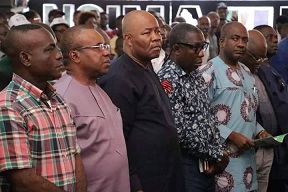Mr. Jipsan Abtan was installed the king of Singaran Town, though he was not the eligible candidate to fill the vacant seat after his father’s demise. He biked his way through with the king-makers, but his German and two uterine brothers were riled about it, and rather through “if he usurps the throne, then we have to fix him in a pillory”, as reprisal for their grievances. Actually he had a stranglehold of the kingship because of his charisma and financial muscle. When Jipsan was about to pass out of college, the father had already been in the Town infirmary for four months, being tended by the town chief surgeon. Zimran was a doctor of great repute and served in many other cities before he decided to take up the appointment, being a provenance of Singaran Town. When Dr. Zimran exhausted his expertise, he called in two other consultants from the neighboring town hospitals. The medical synergy thrived for only one month and eventually, the cold hands of death caught up with King Abtan at midnight of that eventful day, before the three surgeons could rejig their earlier decision not to refer the case to the country infirmary. But they performed the best of their services to save the life of the King. Usually the King’s death was to be concealed until the Kingship rites had been consummated, before the official announcement be made to the public. It was at that time that Mr. Jipsan Abtan initiated his hocus-pocus. In effect he knew there would be a little tussle in the selection since he was not qualified for the seat. But simply because he studied public administration at College, his mind was bubbling with the fact that he’s more suitable than the brothers. Rightly, in addition to the educational certificate, there were other criteria paramount to the king-makers: Firstly – The king heir would be fluent in the native dialect and manoeuvre his formal and informal speeches with native proverbs peculiar with a Singaran Town King. Secondly- he would have kept in the palace for a minimum of two years, close to the king, in meetings and travels to neighbouring countries. Thirdly – he would have accorded the King’s overt approval. While Mr. Jipsan Abtan edged-out on the three qualities, the two uterine Abtans were well-favoured by the populace. Both were also educated and enlightened. But the adage, “the gift blinds” seemed to have had the play over them in preference to Jipsan by the King-makers. It was a custom for the King’s obsequies to be conducted by a mortician, since the other businesses of the burial rites had been completed. At the obsequies the King was given a befitting honour having served his people for a decade. Condolence letters were in tier numbers, and various dignitaries and representatives were in attendance to sign the condolence register and witness the last honour done to a maverick. The coffin was lined on both sides with marten and ermine furs and the pall-bearers rather rolled the bier from the mortuary. After the pomp and ceremony, the king was finally laid to rest at the pantheon and a mausoleum was erected that sufficed his status. The king- makers did settle down to the nitty-gritty for the selection of the next king. The plebs had no qualms about who the next king would be. Their choice from outside the palace fell on either of the two that they all knew were qualified. But the king-makers went beyond the usual two weeks stipulated for the selection exercise. The extension raised eye-brows, and the Town people began small talks about the unusual delay. Jipsan was busy thrusting the decision of the King-makers with mercenary and machinery to distort the upshot of the selection. Though the interviews were intensive, but all were lopsided exercises just to bilk the public that king-selection was an enormous task that needed keen attention. Eventually the dice was cast and Jipsan Abtan was announced as the next king of Singaran Town. The Town’s joy for a new king was dampened by the choice of the person, and the king-makers knew they had muzzled their decision and sold-out their consciences. The installation was done with skeletal attendance and very limited outside kings and representatives because of the choice of the new king. A large number of them were intimated by the deceased king during inter-town king meetings of the likely candidates to the throne of Singaran Town. Since the members of the King’s household were trained against violence, so the other Abtans rather resulted to undo Jipsan through a pillory. They staged a campaign with many council chiefs who completely opposed Jipsan’s choice. So during palace deliberations which they also were in attendance as a right, the discussions would be whittled down to purely native dialect, with deep proverbial languages that Jibsan would complete be lost at all time. The majority of the palace chiefs in consultation with the outside Kings who were not in favour of Jibsan’s choice, decided that palace meetings be drafted in the native dialect. During outside engagements, the other kings also adapted a similar method, which was embarrassing to Jipsan; “His king-makers” were not help to him since it was a unanimous assent in the council. As the situation continued, opportunities for developmental projects were by-passing Singaran Town, because Jipsan the King was not able to communicate among his colleagues to give the Town the favoured opportunities they would have received from the “Province Sharing Formular”. The plebs had to make representations through the ombudsman to the palace. The written projects were presented to the King of the unbeneficial “Province Sharing Formular”. The palace chiefs inflamed more such opposing voices on paper with many signatories. When sufficient write ups were assembled, the chiefs began a “vote of no confidence” move against King Jipsan. Sections of the palace constitution were properly cited, which highlighted the King’s lapses. Copies were sent to palace councils in other Towns and since they knew what obtained in Singaran Town, they handled the issue with loose-hands, until the deed was done. On the appointed date, the King was helpless and his “king-makers” were stupefied. In a large assembly of other kings, a vote of no-confidence was unanimously passed on King Jipsan by the palace council of chiefs in Singaran Town. “If you know that you are not qualified to represent your people. It is sensible reasoning to back-out; otherwise nemesis will certainly play back on you. Using money to acquire an elective office will spell doom, not only to the individual involved, but to the plebs. Jipsan’s maneuvering turned out against him and the people of Singaran Town”. It was a supercilious incident not chronicled in the Province for a generation. King Jipsan Abtan was ousted from the throne and his nine-months Kingship was written in water colours, as he was pilloried.
Breaking News
- Access To Use Tech in N365bn Capital Raise
- Customs Pledges Support For Locally-Made Vehicles
- Kano Gov’t Gives Kano Pillars Ultimatum To Win 3 Games
- Akpabio Seeks Parliamentary Collaboration With Serbian Legislature
- NNPCL, JV Partner Target 20,000bpd Crude Oil At OML 85
- CLO Shows Concern Over April 6 Bayelsa Council Elections
- CSO Secures Reforms To Oil Divestment, Host Community Deals
- World Bank, AfDB Partner To Provide 300m Africans With Electricity
- FG To Execute $3.8bn Gas Supply Agreement In May
- Marketers Visit PH Refinery, Plan Fuel Loading In May
 Newsfront Online …Telling the Public as it is
Newsfront Online …Telling the Public as it is



